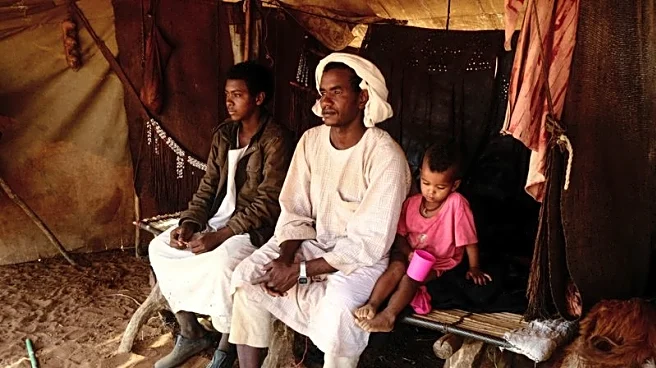What's Happening?
A recent opinion piece highlights the positive impact of farm life on children's mental health and self-esteem. The author, a former middle school teacher, observes that children raised in agricultural settings tend to have more responsibilities, which contribute to their sense of worth and importance. These children engage in daily chores such as caring for animals and assisting with farm maintenance, fostering a sense of responsibility and reducing time spent on social media. The author notes that children with farm responsibilities appear to have fewer issues with mental health and self-esteem compared to their peers raised in non-agricultural environments.
Why It's Important?
The insights provided in the article underscore the potential benefits of responsibility and active engagement in children's development. By participating in farm activities, children may develop a stronger sense of self-worth and resilience, which can mitigate the negative effects of social media and peer pressure. This perspective suggests that integrating responsibility and meaningful tasks into children's lives could be a valuable strategy for enhancing mental health and self-esteem. It also highlights the importance of parental involvement in fostering these qualities, emphasizing the role of parents in providing guidance and support.
What's Next?
Parents and educators might consider incorporating elements of responsibility and active engagement into children's routines, regardless of their living environment. This could involve assigning age-appropriate chores or encouraging participation in community service or extracurricular activities. Such initiatives could help children develop a sense of purpose and belonging, potentially reducing the incidence of mental health issues and improving self-esteem. Additionally, further research could explore the specific aspects of farm life that contribute to these positive outcomes, providing a basis for broader application in diverse settings.
Beyond the Headlines
The article raises broader questions about the role of environment and lifestyle in shaping children's mental health and self-esteem. It suggests that the structured and purposeful nature of farm life may offer protective factors against the challenges posed by modern digital and social environments. This perspective invites a deeper exploration of how different lifestyles and environments can be leveraged to support children's development, potentially informing public policy and educational practices aimed at promoting mental well-being.










